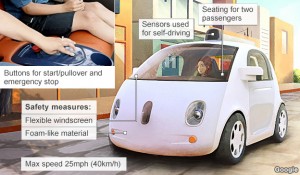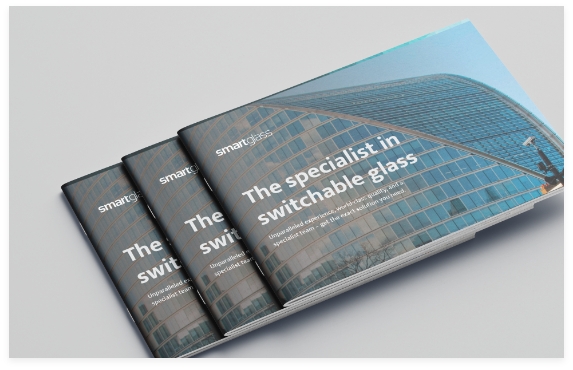Download Smartglass Brochure
spaces that adapt to users’ needs at the flick of a switch.
Last year the British government announced that it wants to make UK the world center for development of driverless cars. But to design and build a testing ground for autonomous vehicles would in fact demand a huge amount of money.

The target is to build for testing purposes at least 100 fully autonomous vehicles that would run on the town’s pathways with pedestrians by 2017. The pressure is on – as Google announced recently. After performing many tests they claim that such a car will be ready to hit the streets in 2015.
“I call it mobility on demand. You pop out your mobile phone, say where you want to go and how many people and in a short amount of time a vehicle rolls up,” said Brad Templeton, software engineer and adviser to Google on its self-drive car project.
Would this be a turning point in perceiving public transport? We do however see some problems popping up with autonomous cars. Who would be responsible for malfunctioning of the car’s sensors once they collide or hit a pedestrian or cyclist? Technically, it would be the car’s fault – not it’s driver – but that is not really a comforting message.
This year BBC was given access to the Google team to talk about the project. The vehicle they work on is supposed to reach a max speed of 40km/h and it looks like a city car. The car’s main construction material would be ‘foam-like’, being simultaneously a safety measure. It would be a two-seater and the only action needed after entering the car would be pushing the start button and introducing the required direction / destination address into the computer.
It seems that self- driven vehicles is a step forward into the future that is or will be followed by many other car producing companies, for example Nissan or Daimler. The presented Mercedes S500 already uses a radar and 3D stereoscopic cameras to keep a safe distance from other cars. We can assume that it will not be long to see self-driven vehicles on the roads.
To read the original BBC article click here.

Wherever you are in the world one of our team will be in touch to advise on the best smart glass solution for your needs.